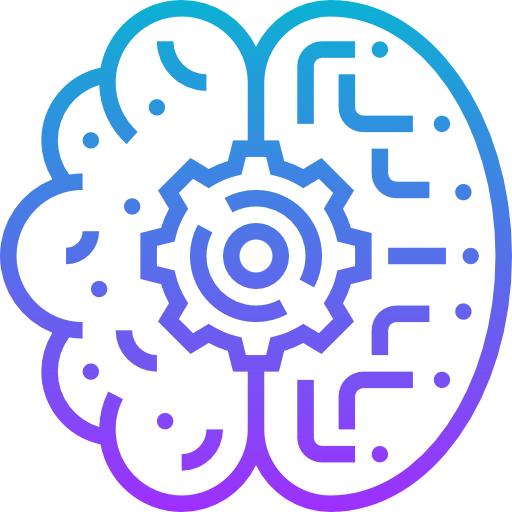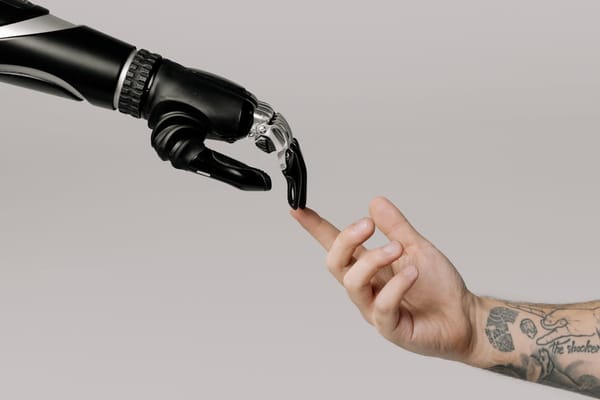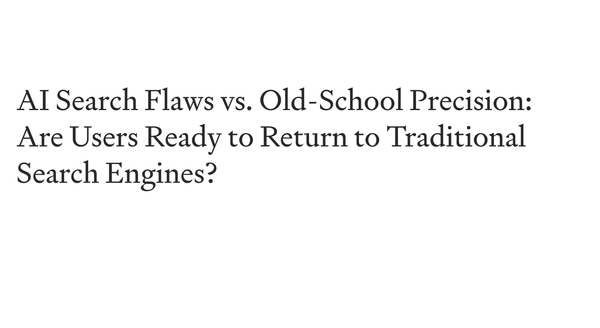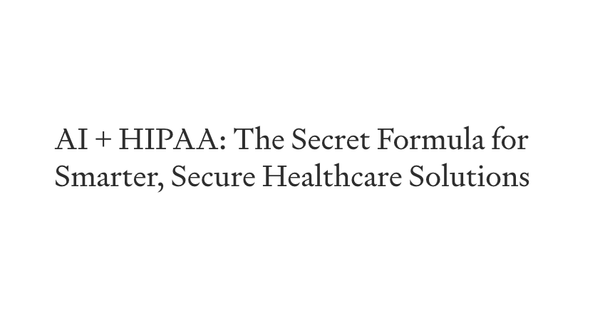My Personal Journey Into Building AI Agents for Mental Health
Table of Content
I’m excited to share my journey into the realm of AI agents for mental health support. I wear two hats in my life—one as a doctor and another as a developer—so I’ve always been intrigued by how technology and healthcare can intersect in exciting (and sometimes unsettling) ways.
I recently had a heart-to-heart conversation with a friend of mine who happens to be a psychologist. We discussed the possibility of creating AI agents that could provide emotional and mental health support.
The idea was initially thrilling: imagine someone who can’t afford therapy or feels uncomfortable talking to another human being having access to an AI-based support system, 24/7, from the comfort of their home. It sounded too good to be true—or maybe just a bit too futuristic. But that’s exactly where technology is heading, right?
Over the past couple of months, I took a deep dive into building and testing these AI agents. I played around with multiple Large Language Models (LLMs) such as OpenAI’s GPT-based models and other emerging frameworks, including the more advanced and open-source ones.
I even considered building VR experiences for ADHD support and conceptualized a gaming environment specifically tailored for individuals with attention challenges. (Spoiler: I actually ended up creating a small ADHD-themed game for the Global Game Jam—a chaotic experience but super rewarding!)
The deeper I went, the more I realized that while AI for mental health is full of potential, it also comes loaded with limitations, ethical concerns, and downright scary possibilities. So, let’s talk about that: the good, the bad, and the uncertain.
Disclaimer: The following article is based on personal insights and experiences. It should not be taken as professional medical advice. If you’re experiencing any mental health concerns, please consult a qualified psychologist, psychiatrist, or medical professional.
Why the Fascination With AI for Mental Health?
If you’ve ever tried booking a therapy session, you might have encountered long waiting lists or expensive fees. Mental health resources can be tough to access, and even if you manage to get in, it can be overwhelming.
That’s why the idea of an AI agent that’s always available, can talk to you in a calm, supportive manner, and provide guidance seems like a dream come true.
And to be fair, AI agents can be pretty impressive these days. They can analyze large volumes of data, spot patterns, even mimic human-like conversation.
Some of them are so good at conversation that you might forget you’re talking to a machine. But does that mean they should replace the mental health professionals we have in real life? Probably not.
The Temptation of Self-Diagnosis
One of the biggest concerns that popped up in my research was self-diagnosis. People like convenience—myself included. And an AI agent that can quickly label your symptoms might feel like a shortcut to clarity. But is it reliable?
Well, not really. AI is still heavily dependent on the data it’s trained on, and that data is never perfect. It might miss nuances, especially psychological ones that are unique to your personal history and emotional landscape. If we rely on an AI to diagnose ourselves, we risk mislabeling complex issues, overlooking comorbidities, or ignoring external factors that a human clinician would catch.
I found a piece discussing the dangers of self-diagnosis in AI platforms, which really resonated with my own worries: Why AI Self-Diagnosis Is Dangerous. It highlights how relying too much on AI can create misinformed individuals who might either underplay or overreact to symptoms. It’s a risky game.
Let’s not forget that actual human health professionals, like psychiatrists and psychologists, spend years studying human behavior, diagnostic criteria, and therapeutic methods. An AI, on the other hand, learns patterns from data. Can it replicate decades of clinical expertise? Possibly in the future. But right now, we’re just not there yet.

Real-Life Tragedies and Ethical Quandaries
It’s not just about misdiagnosis—there are real ethical concerns as well. There have been alarming stories, such as the one covered by The Guardian about how a chatbot from Character.AI was allegedly involved in a user’s tragic decision to end his life: Character.AI chatbot story. The question arises: who’s responsible when AI-based mental health support systems give harmful or inaccurate advice?
This tragic event underscores the gravity of relying too heavily on an AI system that isn’t monitored by professionals. An AI doesn’t possess genuine empathy or the ability to sense deeper emotional distress the way a human therapist can. If the conversation goes into a dark or dangerous territory, the AI might not know how to respond appropriately—no matter how many data points it’s trained on.
So it’s not just about the limitations in diagnosing; it’s also about how these AI “conversations” can go very wrong if they’re not carefully supervised or regulated. This leads us to the question: Should AI be allowed to handle situations with potentially life-threatening consequences?
Building AI Agents: The Nuts and Bolts
From a developer’s perspective, training an AI to handle mental health queries involves curating datasets that represent various psychiatric conditions, therapy methods, and best practices. You want it to respond with empathy, or at least with an approximation of empathy. This means sifting through thousands of therapy dialogues, research papers, and clinical notes. The complexity is staggering.
I also explored various AI frameworks and discovered some really interesting ones: AI Agent Frameworks Review. The article outlines how some frameworks integrate advanced features like multimodal learning, reinforcement learning for dialogue management, and so on.
Yet, none of them can fully replicate the complexities of human cognition. They come close in certain aspects but can still produce glaringly off-base responses if something in the conversation triggers a gap in their training data.
My VR Experience for ADHD
One angle that truly excited me was creating VR experiences for ADHD support. ADHD is an area close to my heart. I’ve observed friends, family members, and even patients struggle with concentration, time management, and emotional regulation.
So I thought: why not create an immersive VR environment that not only entertains but also helps individuals navigate ADHD-related challenges? This concept led me to do some reading on building VR experiences specifically for ADHD. Here’s a resource that outlines the process: Creating VR Experience for ADHD.
I ended up experimenting with different VR prototypes—little worlds that encourage focus through gamified tasks. Think of collecting items in a guided environment where distractions are minimized or systematically introduced in a controlled manner so participants can practice coping strategies. While it’s no silver bullet, it can complement traditional therapy, giving people a safe space to experiment with focus-training exercises.
I even took these ideas to the Global Game Jam, where I collaborated with other developers and created a small game focusing on ADHD challenges. It was a blast, and we got positive feedback for making something that was not only fun but also had a potential mental health benefit.
Where AI and Traditional Therapies Meet
It’s not all doom and gloom. AI can be integrated into traditional therapy settings as a supportive tool rather than a replacement. Imagine a scenario where a psychiatrist uses an AI-powered platform to analyze large sets of patient records quickly, identifying patterns or potential risk factors that might otherwise be overlooked.
In addiction treatment, for example, there are already discussions around utilizing AI to provide ongoing support. Yet many groups, such as Alcoholics Anonymous, still remain faithful to their core principles of human-to-human connection while cautiously exploring AI’s role. If you’re curious, check out this article on how AA stays true to its roots even in the face of AI-driven treatment programs: Alcoholics Anonymous and AI Addiction Treatment.
The goal, in my opinion, shouldn’t be to replace the warmth and empathy of human caregivers but to augment their capabilities. An AI could act like a digital companion in between therapy sessions, offering structured prompts and gentle reminders. Then, the actual therapist can review the data logs to understand patterns in the patient’s mood or behavior over time.
The Limitations and Challenges We Can’t Ignore
1. Overreliance on AI
One of the biggest dangers is that people might rely too much on AI agents and skip seeking professional help. Think about it: you have immediate access to an AI, it’s cheaper (or even free), and it never seems to judge you.
But just because it’s available doesn’t mean it’s qualified to handle the full spectrum of mental health issues.
2. Ethical and Legal Ramifications (Legal Grey Area)
If an AI gives poor advice that leads someone down a harmful path, who is held accountable? The developer? The data scientist? The platform hosting the AI?
We’re stepping into a legal grey area here, and the laws haven’t fully caught up with these developments.
3. Data Privacy
Mental health data is extremely sensitive. Even casual conversation logs can reveal personal details. Is this data secure? What about hacking, data leaks, or unauthorized data usage?
We must ensure robust data protection mechanisms are in place before people feel safe sharing their innermost thoughts.
4. Generalization vs. Personalization
Most AI models, unless specifically tailored, offer generalized responses. Real therapy is about personalization—understanding your unique context, history, and emotional triggers. Without that context, the AI might provide generic solutions that may or may not work for you.
Asking the Right Questions
- Can AI agents truly provide emotional support, or do we just perceive it as empathetic because it mirrors our language?
- Do AI-driven tools help fill gaps in the mental health industry, or do they create new ones by encouraging self-diagnosis?
- What’s the right balance between AI assistance and the indispensable need for trained mental health professionals?
These are questions I find myself pondering regularly. As a doctor, I see the potential for AI to triage patients, provide basic psycho-education, and even guide CBT-like exercises. As a developer, I’m excited about the technical possibilities—like integrating VR, building advanced natural language understanding, and maybe even simulating realistic emotional responses.
But as a human being, I’m concerned about how quickly we might adopt these tools without fully understanding the implications.
My Experience With a VR ADHD Game
Let me circle back to that ADHD game I mentioned earlier. During the Global Game Jam, a small group of us, including artists and coders, built a prototype game that placed players in scenarios requiring them to navigate everyday tasks while coping with ADHD-specific challenges. The environment would gradually get more chaotic, introducing more distractions. Points were awarded for effectively managing those distractions and completing the task at hand.
The feedback from people who tried it was fascinating. Some individuals without ADHD said, “Wow, I had no idea it felt like this!” Meanwhile, those who live with ADHD found it relatable and, interestingly enough, a bit validating. It sparked my curiosity: could we tie this game into an AI coaching system that observes how you play, offers real-time tips, or suggests coping strategies?
Yes, we probably could. But I remain cautious. There’s a thin line between helpful guidance and a platform that inadvertently becomes a “fake therapist.” Any system that actively interacts with mental health should either be closely supervised by a professional or should carry very visible disclaimers about what it can and can’t do.
Building Responsible AI Agents for Mental Health
So, how do we build AI agents responsibly in this space? Here are a few ideas:
1- Collaborate With Professionals
Work hand-in-hand with psychiatrists, psychologists, and therapists during the design and testing phases. This ensures the AI is grounded in recognized clinical guidelines and best practices.
2- Regular Audits and Updates
AI models need continuous monitoring to ensure they don’t develop harmful biases or start generating advice that conflicts with clinical standards. Periodic audits can catch these issues early.
3- Clear Disclaimers
AI agents should explicitly state they are not a substitute for professional help. Encourage users to seek in-person evaluation for serious issues.
4- Focus on Augmentation, Not Replacement
Integrate AI tools as an additional layer of support rather than a standalone solution. This approach reduces the risk of overreliance.
5- Data Privacy and Security
Implement strong encryption, secure servers, and transparent data usage policies. After all, these are people’s deepest concerns and vulnerabilities being shared.
A Call to Professionals and the Community
As I continue my journey, I would love to hear thoughts from psychiatrists and psychologists. How do you envision AI fitting into your practice? Are there red lines you think we shouldn’t cross? And what about the broader community—would you trust an AI with something as vital and delicate as your mental well-being?
Feel free to share your opinions, experiences, or concerns in the comments. We learn best when we learn from each other, and mental health is a deeply personal topic that deserves respectful conversation.
Wrapping Up
We stand on the cusp of an era where AI agents might become commonplace in mental health. The potential benefits are huge—greater accessibility, real-time support, and personalized experiences. But so are the pitfalls—risk of misdiagnosis, ethical dilemmas, privacy breaches, and a dangerously tempting path to self-diagnosis.
It’s an exciting yet unnerving frontier. In my personal quest—balancing my identity as a doctor, developer, and just a curious human—I’ve seen both sides. AI can assist but can also mislead. It can comfort but can also fail us at critical moments. The key is to proceed with caution, empathy, and a strong sense of ethical responsibility.
Would you consider using an AI mental health agent for emotional support? Or do you think this entire concept is opening a Pandora’s box? Let’s chat about it!
Sources and Further Reading
- Character.AI Chatbot and Tragic Death
“Character.AI chatbot story” – A sobering article from The Guardian on how a chatbot might have contributed to a user’s tragic decision. - Alcoholics Anonymous and AI
“Alcoholics Anonymous Stays True to Its Roots: AI Addiction Treatment” – A piece on how AA is cautiously embracing AI while keeping real human connection at its core. - Dangers of Self-Diagnosis
“Why AI Self-Diagnosis Is Dangerous” – A must-read discussing how misleading AI diagnoses can have harmful effects. - AI Agent Frameworks
“AI Agent Frameworks: A List of 1600+ Tools” – Curious about building your own AI agent? This resource delves into various frameworks and their features. - Creating VR Experiences for ADHD
“Creating VR Experience for ADHD” – An insightful look at designing immersive virtual experiences specifically aimed at helping individuals with ADHD challenges.
Thank you so much for reading this rather long piece, and I hope you found it as fascinating (and sometimes alarming) as I did. I truly believe that with the right balance of caution, empathy, and professional guidance, AI can be a helpful ally in mental health. But it will never—nor should it—replace the nuanced care of human professionals.
So, what do you think? I’d love to know your thoughts, especially if you’re a mental health professional or someone who’s curious about AI’s impact. Let’s keep the conversation going!










